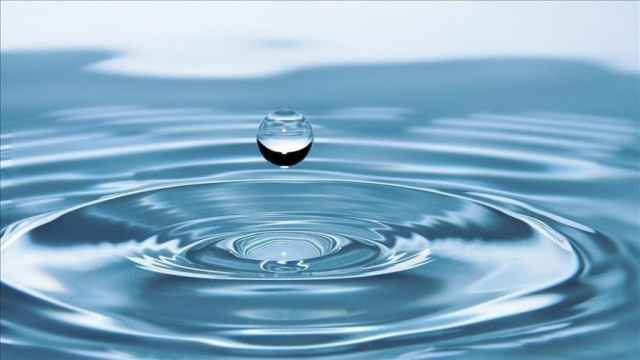Pakistan calls for trans-boundary water cooperation
UN report warns Pakistan faces critical levels of water security

The UN 2023 Water Conference has wrapped after a breakthrough response to the global water crisis, with governments, businesses and civil society making almost 700 commitments to advance the water agenda, a dealmaker for accelerating sustainable development overall.
Pakistan on Thursday stressed the need for trans-boundary water cooperation, citing the 1960 Indus Water Treaty with India as an example of such successful cooperation that provided an effective mechanism to deal with issues related to the shared water resources.
Hasan Nisar Jamy, Water Resources Ministry Secretary and Pakistan’s chief delegate, told the UN Water Conference at the United Nations in New York that Pakistan shared surface and groundwater resources with two neighbouring countries.
“Within the South Asia region, population growth and increasing water demand, coupled with climate change impacts and ecosystem degradation, has made water cooperation even more imperative,” Jamy told the general debate.
“The Indus Waters Treaty, which governs sharing of the Indus basin’s waters, is one example of such successful cooperation, which provides an effective mechanism for cooperation and management on water issues,” Jamy added.
The conference, the first in almost five decades, aims at dealing with the water-related challenges. Speaking on the penultimate day of the three-day event, Jamy warned against unilateral actions, which could “spiral into threats to regional peace”.
Pakistan is among the top 10 water scarce countries in the world, and has also been among the top 10 climate vulnerable countries. Jamy stressed that Pakistan’s main water resource was highly sensitive to climate change.
On ‘Water Governance’, Jamy said that a policy was currently being implemented with focus on the construction of new reservoirs, improving water use efficiency, ensuring conservation and improving management.
“We have also started to formulate and promulgate ‘Ground Water Regulations’ and establish supportive authorities at the provincial and sub-national levels,” the chief Pakistani delegate added.
At the conference, The UN University Institute for Water, Environment and Health (UNU-IWEH) issued a new ‘Global Water Security 2023 Assessment’ report, bracketing Pakistan in the list of 23 least developed countries (LDCs) and small island developing states (SIDS) facing critical levels of water security and sanitation services.
The UNU-IWEH said in the report that these 16 LDCs and seven SIDs were also marked by high water, sanitation and hygiene (WASH)-attributable mortality rates.
The 23 countries include Pakistan, Afghanistan, the Solomon Islands, Eritrea, Sudan, Ethiopia, Vanuatu, Djibouti, Haiti, Papua New Guinea, Somalia, Liberia, St Kitts & Nevis, Libya, Madagascar, South Sudan, Micronesia, Niger, Sierra Leone, Yemen, Chad, Comoros and Sri Lanka.
“These countries are severely impeded from achieving water security in seven of the 10 components; low levels of access to safely managed drinking water and sanitation services, health, measured by high WASH-attributed mortality, water quality, water value, water governance and water resource stability with high interannual variability and low storage capacity,” the report said.
The report assessed 57 countries in the Asia-Pacific – 11 SIDS and 10 LDCs – with a total population of over 4.67 billion, including Papua New Guinea, the Solomon Islands, Afghanistan, Vanuatu, Timor-Leste, Pakistan, Cambodia and Yemen.
The report recalled that in 2022, unprecedented rainfall and flooding in Pakistan affected approximately 33 million people, with estimates of total damages exceeding $14.9 billion and total economic losses reaching about $15.2 billion.
“Beyond losing human life, the safety of an economy from losses due to water-related disasters can have a major influence on all aspects of development and countries prosperity,” the report warned.
“Without water security, countries are simply incapable of supporting freshwater ecosystems, livelihoods and human well-being,” Dr Charlotte MacAlister, the report’s lead author and senior water security researcher at the UNU-INWEH, said.
“This global assessment highlights significant development challenges that policy discussions should centre on in the seven years left to fulfil SDG 6,” MacAlister said, according to a statement issued by the UN.
UNU-INWEH Director Prof Kaveh Madani noted the value of this first global outlook of water security as “a major contribution” to the UN 2023 Water Conference that took place from March 22-24 in New York.
“While not an easy undertaking, this research identifies where we should target policy, funding, and action to accelerate progress, meet the 2030 Agenda and ensure that the most vulnerable and insecure are not left behind.”
(WITH INPUT FROM NEWS DESK)



















COMMENTS
Comments are moderated and generally will be posted if they are on-topic and not abusive.
For more information, please see our Comments FAQ